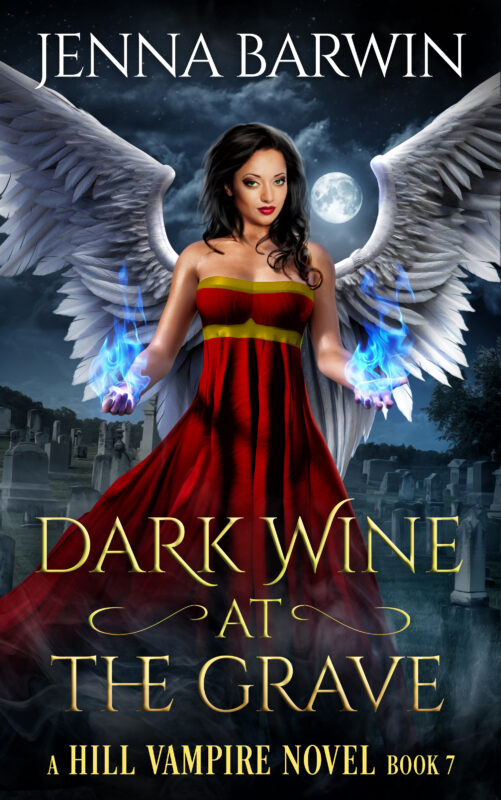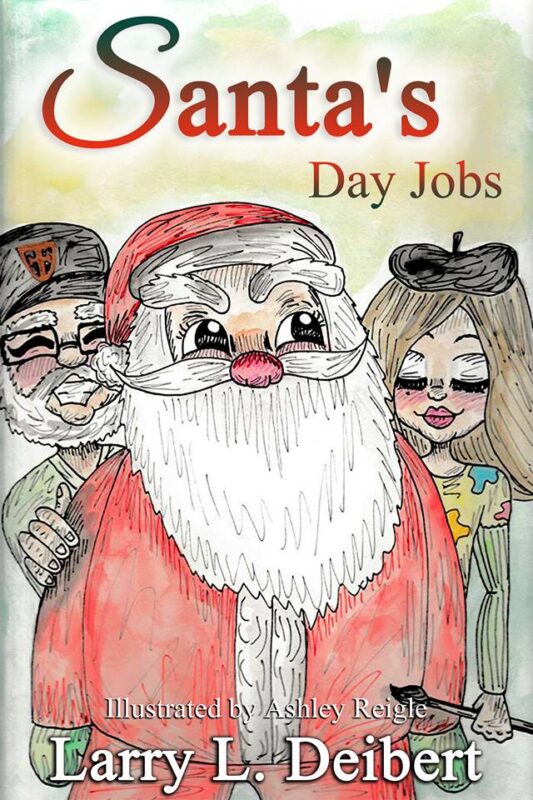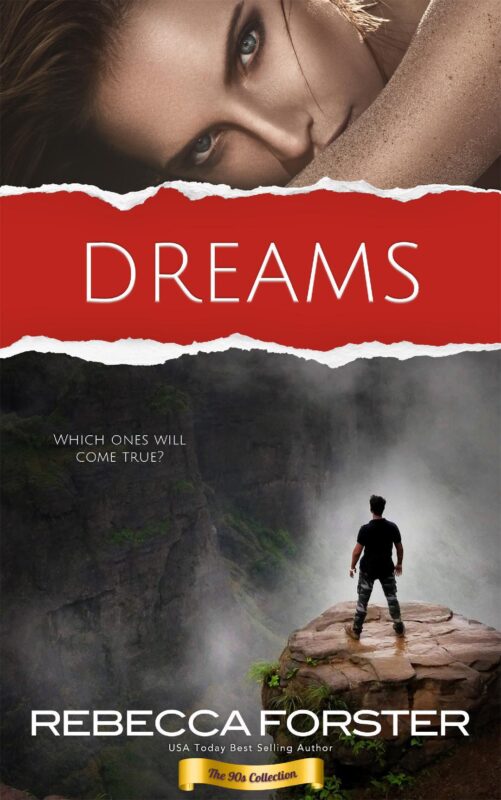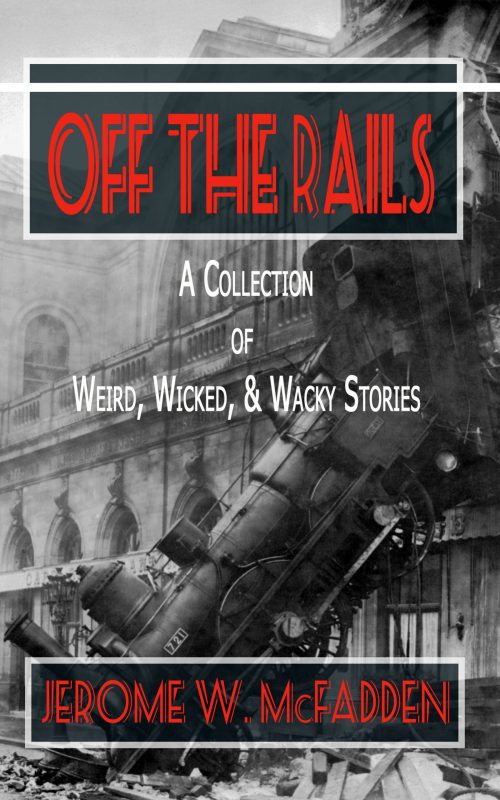Hot! Hot! Hot! by Carol L. Wright
July 13, 2024 by Bethlehem Writers Group in category From a Cabin in the Woods by Members of Bethlehem Writers Group tagged as 2025 Short Story Award, anthologies, BWG, Carol L Wright
And we’re not even talking about the summer weather. What’s so hot right now?
Hot topic #1:
This month, the Bethlehem Writers Group, LLC, announced the winners of its 2024 Short Story Award competition for works of 2000 words or fewer on the theme of “Holiday Tales.” For this competition, “holiday” was defined as anything from U.S. Thanksgiving through New Year’s Day. The talented authors whose stories are honored are:
First Place: Rhonda Zangwill, New York, NY, for “Oh! Christmas Tree”
Second Place: Bettie Nebergall, Mt. Dora, FL, for “Just Ask Santa”
Third Place: Mary Adler, Forestville, CA, for “Nellie the Narragansett and the Transferware Platter”
Honorable Mentions (in alphabetical order by author’s last name):
- A. C. Blake, West Columbia, SC for “A Feast to Die For”
- J. Bosley, New York, NY for “A Wintry Mix”
- Joan Mularz, Palm Beach Gardens, FL for “Cousin Bonnie’s Plus One”
Many thanks to Marlo Berliner, our Guest Judge, who selected this year’s winners.
Hot topic #2:
For the first time in the history of the Short Story Award, BWG decided to offer print publication to the second- and third-place winners instead of only to the one who won first-place. This means that you’ll get to read all three of these terrific stories in one volume.
Hot topic #3:
The book in which these stories will appear, Season’s Readings: More Sweet, Funny, and Strange® Holiday Tales will be published this fall in print (ISBN: 978-1-954675-04-9) and ebook (ISBN: 978-1-954675-05-6). In addition to this year’s contest winners, the 2023 contest first-place winner, Sally Milliken’s “First Thanksgiving,” will also be included. And, of course, you’ll also get stories from the authors of the Bethlehem Writers Group. Some of the stories are heart-warming, others quirky, and still others with a hint of magic. Watch for the book to be available on October 1.

And a bonus sizzle for writers!

As if the book coming out on October 1 weren’t enough excitement, we’ll also be unveiling the 2025 Short Story Award competition that day in the fall issue of Bethlehem Writers Roundtable (https://bwgwritersroundtable.com). For next year’s contest, which will open on January 1, 2025, we’ll be looking for stories of science fiction and/or fantasy, and this year we’ll allow the stories to be a bit longer with a 2500 word maximum. The top three winners will receive cash and offers of publication (in print or online in Roundtable). We’ll have all the info for you in October, but until then, sharpen your pencils, grab a cool drink, find a place in the shade, and fire up your sci-fi/fantasy muse. Your story could be the next hot topic!
Enjoy your simmer, er summer.
Book from BWG
Books by Carol L. Wright
Poetry Lesson: A metered approach to writing prose
June 13, 2024 by Bethlehem Writers Group in category From a Cabin in the Woods by Members of Bethlehem Writers Group tagged as inspiration, poetry, prose, writing
At a recent writers conference (the Write Stuff in Bethlehem, PA) keynote speaker Jonathan Maberry shared that he reads poetry for 30 minutes every day. He does it, he said, because it helps inspire his prose.
I have a fair amount of poetry on my shelves, and I do enjoy reading it, but I don’t read it every day. (I don’t write poetry; or rather, the poetry I write is best not shared with anyone.)
But Maberry has a point: Poetry can tell a story, illuminate a concept, or create a mood with a minimum of words—each word chosen by the poet because it’s exactly the right one. And that approach can inspire our writing of prose, because honing language is also what we strive for when we revise and polish our manuscripts.
I went to my poetry bookshelf and randomly pulled several volumes:
- Paul Muldoon, Horse Latitudes
- Sharon Olds, Strike Sparks
- Billy Collins, Nine Horses
- Mary Oliver, Why I Wake Early
- Natalie Diaz, Postcolonial Love Poem
- Sarah Arvio, Visits from the Seventh
For this exercise, I skipped over my book of Shakespeare sonnets and any poetry anthologies, as well as the two books of poetry I’m currently reading: Life on Mars by Tracy K. Smith and The Best of It by Kay Ryan.
I’ll share a snippet from the poets listed above and what struck me about their passages.
From Mary Oliver’s “Snow Geese” (breathtaking visual image)
One fall day I heard / above me, and above the sting of the wind, a sound / I did not know and my look shot upward; it was / a flock of snow geese winging it / faster than the ones we usually see, / and, being the color of snow, catching the sun / so they were, in part at least, golden
From Natalie Diaz’s “The First Water Is the Body” (depth of the soul)
We must go until we smell the black root-wet anchoring the river’s mud banks. We must go beyond beyond to a place where we have never been the center, where there is no center—beyond, toward what does not need us yet makes us.
From Sharon Olds’ “The Promise” (interesting juxtaposition of opposing elements)
With the second drink, at the restaurant, / holding hands on the bare table, / we are at it again, renewing our promise / to kill each other.
From Sarah Arvio’s “Malice” (superb characterization)
An ever-so-alluring deceiver / is the one who tells you your every dream / as though it were the truth of the future; / meanwhile there you stand in a wash of sweat, / your hopes lifted high only to be dashed.
From Paul Muldoon’s “The Old Country” (clever wordplay)
Every malt was a single malt. / Every pillar was a pillar of salt. / Every point was a point of no return.
From Billy Collins’ “Absence” (metaphorical excellence)
This morning as low clouds / skidded over the spires of the city / I found next to a bench / in a park an ivory chess piece— / the white knight as it turned out— / and in the pigeon-ruffling wind / I wondered where all the others were, / lined up somewhere / on their red and black squares, / many of them feeling uneasy / about the saltshaker / that was taking his place
I came away from this exercise re-energized to dip into poetry regularly—most likely not every day, but perhaps weekly, when I’m staring at my screen, wondering how to dig myself out of the writing hole I’ve created. A poetry break may help provide just the shovel or pick axe I need.
What poets do you read? How have they influenced your writing?
Dianna Sinovic
Certified Book Coach, Editor, Author
Anthology contributor: That Darkened Doorstep, An Element of Mystery
Blog contributor: A Slice of Orange
Member: Sisters in Crime, Horror Writers Association, Bethlehem Writers Group
Diasin Books LLC
www.dianna-sinovic.com
“Art is fire plus algebra.”
– Jorge Luis Borges
From The Bethlehem Writers Group, LLC
0 0 Read more
The Seven Challenges I Love About Writing Short Stories by Jerome W. McFadden
May 13, 2024 by Bethlehem Writers Group in category From a Cabin in the Woods by Members of Bethlehem Writers Group tagged as Jerome W. McFadden, Short Stories, writing, Writing Advice
Multi-award winning Jerome W. McFadden’s has had forty short stories published over the past ten years in magazines, e-zines, and a dozen anthologies. His efforts have won him several national awards and writing contests, receiving a National Bullet Award for the Best Crime fiction on appear on the web in June 2011. His short stories have been read on stage by the Liar’s League in Hong Kong and the Liar’s League in London.
After receiving his B.A. from the University of Missouri, he spent two years as a Peace Corps volunteer in Casablanca, Morocco. Following his MBA from the Thunderbird Graduate School of Global Management (Arizona State University). He continued his peripatetic ways with corporate assignments in Houston, Istanbul, Paris, San Francisco, and Singapore, spending his spare time writing free-lance articles for American and newspapers and magazines. He morphed from journalism to short fiction in 2009. He now resides in Bethlehem, Pa. and is an active member of the Bethlehem Writers Group. His collection of 26 short stories, Off The Rails, A Collection of Weird, Wicked, & Wacky Stories, appeared in November, 2019.

The Seven Challenges that I Love About Writing Short Stories
1) You need to get into the story from the very start:
Every word in a short story matters. Time and space are limited. You cannot afford to waste a page or two describing the weather, building the setting, or giving the genealogy of your hero/heroine. You need to get to the guts of the action quickly, pulling the reader in with the first paragraph. By the end of the first page, the reader should be aware of the famous 5 W’s of journalism: Who, where, when, what, with why possibly coming later.
2) You need to quickly define the core of the story:
Short stories follow only one trajectory — one arc—concerning one character (or a small group of characters) traveling through one primary crisis or concern. The crisis or concern is in fact one shattering moment in that person’s (or group’s) life that he/she must work through, successfully or unsuccessfully. Note: That shattering moment does not need to be violent. It could be emotional, psychological, mental, or spiritual, or other. But it needs to be challenging. *
3) You must develop your characters rapidly:
Characters must be constructed with complexity, credibility, and emotion—in as little as a sentence or two. The writer must show character development while actively moving through the story’s narrative. You do not have time or space for the big old info dump. Instead, the writer needs to use clever dialogue, interactions, short flashbacks, and sharp imagery to develop the story’s characters.
4) You are allowed only so many characters in the story:
You are limited to a small cast of characters. A full cast might consist of only one or two characters. Any character you decide to introduce must bring something crucial to the story – or be eliminated. Bringing in a character for “cuteness” or for “color” or just because you like the quirky character in your head, is wasting precious words and precious space in your story. A good rule: Any character that does not bring in two vital elements into the story needs to be eliminated forthwith.
5) Short stories require a strong pace and balance:
Recognize the descriptions and dialogues that slowing the story down, as well those that are those that are moving the story along. You must identify the best place to start, where to put the opening scene that hooks the reader, then maintain that hook to continue to pull the reader through the rest of the story.
6) Short stories teach you to trim the fat:
Short stories leave no time for easing into things (long descriptions, banal conversations, interesting but boring backstory, wild personal tangents). Short stories are just that—short—but they must always pack a punch. This may be the ultimate skill to be learned from short story writing: Trim the fat. My favorite writing “rule” comes from the legendary writer Elmore Lenonard, “Leave out the parts that the readers skip.”
7) A great short story must create an emotional impact:
The stronger, the better. And a great twist at the ending helps make the story memorable.
An added note: The tools and skill you pick up from writing short stories are assets that can and probably should be used in your novel writing.
*This “shattering moment” is described lovingly and in full detail in Chapter 3 – The Big Key in James Scott Bell’s wonderful book How to Write Short Stories And Use Them to Further Your Writing Career.
A Selection of Books with Short Stories by Jerome W. McFadden
The 2024 Bethlehem Writers Roundtable Short Story Award
April 13, 2024 by Bethlehem Writers Group in category Contests, From a Cabin in the Woods by Members of Bethlehem Writers Group, Writing Contest tagged as Bethlehem Writers Group, Bethlehem Writers Roundtable Short Story Award, Marlo Berliner, Short Story Award, Writing contest
The 2024 Short Story Award Deadline is April 30, 2024
The theme: Season’s Readings
Bethlehem Writers Group is seeking never-published short stories of 2,000 words or fewer for a chance to win.
Winners will receive:
First Place:
$250 and publication in our upcoming anthology: Season’s Readings: More Sweet, Funny, and Strange Holiday Tales
Second Place:
$100 and publication in Bethlehem Writers Roundtable
Third Place:
$50 and publication in Bethlehem Writers Roundtable
Click here for submission rules

The Guest Judge is Marlo Berliner is the multi-award-winning, bestselling author of The Ghost Chronicles series. You can read an interview with Marlo here.

Other Books Published by BWG
Judging English by Carol L. Wright
March 13, 2024 by Bethlehem Writers Group in category From a Cabin in the Woods by Members of Bethlehem Writers Group tagged as American English, British English, English, Noah Webster
As readers of English, it’s fairly easy for us to tell whether an author is from the US or the UK simply because of word choices or spelling variations between the two countries. The reason for this is partly that, at the time of American independence, spelling in English was not completely standardized. How one spelled a word depended more on local convention than a universally accepted right or wrong spelling. Even Jane Austen misspelled (by today’s standards) a word in the title of one of her juvenile works: Love and Freindship.
When American spellings were standardized in the early 19th century, by the publication of Noah Webster’s first American dictionary, the author was intent on exerting a bit of linguistic independence from Britain. Thus, many American words no longer conform to “the King’s English.” In his original 1828 dictionary, Webster presented simplified American spelling to more closely reflect common pronunciation. This is why some US words have one less letter than used in the UK (e.g. color/colour, harbor/harbour, or valor/valour). Americans also drop letters at the end of some words (such as program/programme) or reverse letters (as with theater/theatre). We might want to ask Webster, however, why there is still an I in Austen’s troublesome word friendship, and why he didn’t reform the spellings of tough, though, and through.
Ordinarily, a reader will pass over these differences in spelling without any difficulty. They generally make little difference in how we would say these words, so why should we allow the spelling to give us pause? I have wondered, though, why, in Webster’s eagerness to simplify American spelling, he made a change to one specific word: judgment.
No matter which side of the Atlantic we’re on, English speakers know that we have two consonants that can produce two different sounds: C and G. The letter C can be pronounced as either a K (hard sound) or an S (soft sound); G can be a hard Guh or a soft J. The vowel that follows these consonants informs us as to whether to give the consonant a hard or a soft sound. If the letter is followed by an A, O, or U, it has a hard sound as in carrot, color, current, gable, golf, or guppy. If, however, the vowel that follows the consonant is an E or an I, the consonant should be pronounced with the soft sound, as in cereal, circle, genuine, giraffe . . . or judge.
So far so good, right?
But even Webster was inconsistent. When adding -ment to the word judge, he dropped the e, spelling it judgment. But this makes no sense. If we must drop the E when making judge into judgment, shouldn’t Americans instead spell it as judjment to match how we pronounce it? Or should we just say it jug-ment?
This English idiosyncrasy annoys me a bit. But then, while reading a British author, I noticed something that appeared to me to be an error. The author spelled judgment with an E after the G: judgement. Is it unpatriotic for an American to accuse Noah Webster of getting it wrong? Well, if so—hold on—so do the British! It turns out, in Britain, both spellings, judgment and judgement, are considered correct, but the preferred spelling is . . . judgment.
As many English-as-a-second-language students will tell you, if you’re looking for logic in a language, learn something else. (And we haven’t even mentioned usage in the British Commonwealth.)
The good news is that no matter which side of the Atlantic you come from, or which standard English you use, the 2024 Bethlehem Writers Roundtable Short Story Award competition will be happy to accept your story through our deadline of March 31, 2024. Stories of 2000 words or fewer—in English—are welcome. Our theme this year is “Holiday Stories” (holiday being defined as from US Thanksgiving through New Year’s Day). Winners receive cash and publication. To learn more, see the website at: https://bwgwritersroundtable.com/short-story-award-2/.
We hope you will consider entering your holiday stories and we look forward to reading them. And when we’re scoring them, we promise we will use our best judgement—er judgment!
A Few of Carol’s Publications
Affiliate Links
A Slice of Orange is an affiliate with some of the booksellers listed on this website, including Barnes & Nobel, Books A Million, iBooks, Kobo, and Smashwords. This means A Slice of Orange may earn a small advertising fee from sales made through the links used on this website. There are reminders of these affiliate links on the pages for individual books.
Search A Slice of Orange
Find a Column
Archives
Featured Books
DARK WINE AT THE GRAVE
Henry never thought he’d turn someone vampire. Especially someone who wasn’t his mate…
More info →OFF THE RAILS: A Collection of Weird, Wicked, & Wacky Stories
What happens if everything you thought you understood goes . . . OFF THE RAILS?
More info →TRACKING SHADOWS
When danger whispers in the dark, the shadows are the last place to hide…
More info →Newsletter
Contributing Authors
Search A Slice of Orange
Find a Column
Archives
Authors in the Bookstore
- A. E. Decker
- A. J. Scudiere
- A.J. Sidransky
- A.M. Roark
- Abby Collette
- Alanna Lucus
- Albert Marrin
- Alice Duncan
- Alina K. Field
- Alison Green Myers
- Andi Lawrencovna
- Andrew C Raiford
- Angela Pryce
- Aviva Vaughn
- Barbara Ankrum
- Bethlehem Writers Group, LLC
- Carol L. Wright
- Celeste Barclay
- Christina Alexandra
- Christopher D. Ochs
- Claire Davon
- Claire Naden
- Courtnee Turner Hoyle
- Courtney Annicchiarico
- D. Lieber
- Daniel V. Meier Jr.
- Debra Dixon
- Debra H. Goldstein
- Debra Holland
- Dee Ann Palmer
- Denise M. Colby
- Diane Benefiel
- Diane Sismour
- Dianna Sinovic
- DT Krippene
- E.B. Dawson
- Emilie Dallaire
- Emily Brightwell
- Emily PW Murphy
- Fae Rowen
- Faith L. Justice
- Frances Amati
- Geralyn Corcillo
- Glynnis Campbell
- Greg Jolley
- H. O. Charles
- Jaclyn Roché
- Jacqueline Diamond
- Janet Lynn and Will Zeilinger
- Jaya Mehta
- Jeannine Atkins
- Jeff Baird
- Jenna Barwin
- Jenne Kern
- Jennifer D. Bokal
- Jennifer Lyon
- Jerome W. McFadden
- Jill Piscitello
- Jina Bacarr
- Jo A. Hiestand
- Jodi Bogert
- Jolina Petersheim
- Jonathan Maberry
- Joy Allyson
- Judy Duarte
- Justin Murphy
- Justine Davis
- Kat Martin
- Kidd Wadsworth
- Kitty Bucholtz
- Kristy Tate
- Larry Deibert
- Larry Hamilton
- Laura Drake
- Laurie Stevens
- Leslie Knowles
- Li-Ying Lundquist
- Linda Carroll-Bradd
- Linda Lappin
- Linda McLaughlin
- Linda O. Johnston
- Lisa Preston
- Lolo Paige
- Loran Holt
- Lynette M. Burrows
- Lyssa Kay Adams
- Madeline Ash
- Margarita Engle
- Marguerite Quantaine
- Marianne H. Donley
- Mary Castillo
- Maureen Klovers
- Megan Haskell
- Melanie Waterbury
- Melisa Rivero
- Melissa Chambers
- Melodie Winawer
- Meriam Wilhelm
- Mikel J. Wilson
- Mindy Neff
- Monica McCabe
- Nancy Brashear
- Neetu Malik
- Nikki Prince
- Once Upon Anthologies
- Paula Gail Benson
- Penny Reid
- Peter J Barbour
- Priscilla Oliveras
- R. H. Kohno
- Rachel Hailey
- Ralph Hieb
- Ramcy Diek
- Ransom Stephens
- Rebecca Forster
- Renae Wrich
- Roxy Matthews
- Ryder Hunte Clancy
- Sally Paradysz
- Sheila Colón-Bagley
- Simone de Muñoz
- Sophie Barnes
- Susan Kaye Quinn
- Susan Lynn Meyer
- Susan Squires
- T. D. Fox
- Tara C. Allred
- Tara Lain
- Tari Lynn Jewett
- Terri Osburn
- Tracy Reed
- Vera Jane Cook
- Vicki Crum
- Writing Something Romantic
Affiliate Links
A Slice of Orange is an affiliate with some of the booksellers listed on this website, including Barnes & Nobel, Books A Million, iBooks, Kobo, and Smashwords. This means A Slice of Orange may earn a small advertising fee from sales made through the links used on this website. There are reminders of these affiliate links on the pages for individual books.
































































